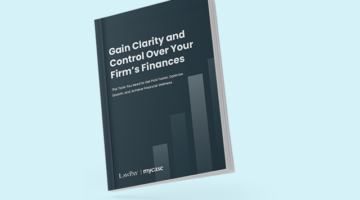 Sentencing mitigation videos were once things that federal public defenders used on a whim; after all, they seem to exist in a legal gray, with some judges embracing them and others refusing to even consider them. Now, the trend has caught on, and private lawyers have started to use these videos as a tactic to humanize their clients before judges in both criminal and civil trials.
Sentencing mitigation videos were once things that federal public defenders used on a whim; after all, they seem to exist in a legal gray, with some judges embracing them and others refusing to even consider them. Now, the trend has caught on, and private lawyers have started to use these videos as a tactic to humanize their clients before judges in both criminal and civil trials.
Doug Passon, the lawyer who pioneered these videos and now serves as president and creative director of D Major Films, has written extensively about using film to tell a client’s story, and says that in order to get favorable results, lawyers must “rise to the challenge of making judges ‘suffer'” — just as their clients are suffering. As Passon noted in an interview with the Wall Street Journal, when lawyers use these videos in court, “[t]he sentences are almost always better than they would otherwise be.”
In fact, Passon has been holding a sentencing and post-conviction film festival at an annual training conference for federal public defenders for almost a decade, and that film festival is the subject of the latest New York Times Op-Doc, by Lance Oppenheim, a young filmmaker whose parents are lawyers. Here’s what he had to say:

Take Control Of Your Firm’s Finances With Tools Built For Success
Position your firm for long-term growth with better financial visibility and control. Learn how to track performance, manage spending, and plan strategically—download the full e-book now.
These films are made for an audience of one: the presiding judge. …
In photography and film, there’s an elusive color tone halfway between black and white called middle gray. Just like the phenomenon of middle gray, sentencing videos exist in an in-between space where legal conceptions of fact and fiction, right and wrong, become amorphous. Even though the videos are grounded in truth, their ability to play with judges’ emotions challenge the courtroom’s conception of “truth, the whole truth, and nothing but the truth.” What I discovered from looking at the growing practice of sentencing videos was far more complicated than I ever imagined.
Check it out Oppenheim’s short film, No Jail Time: The Movie, here:
Without knowing that this film festival had been held for the past eight years, it was easy to think this was satirical. From Passon declaring that it was “wine o’clock” in the middle of the film festival to Federal Public Defender Deborah Williams of the Southern District of Ohio making a gaffe as she accepted an award by saying her Habeus Unit had “produced a killer — oh, sorry — a kick-ass clemency video,” it all seemed a bit too surreal, and the way the film festival and all of the characters (who are actually real people) were presented was reminiscent of The Office.

Private Practice Lawyers: Rater Your Work With In-House Counsel
Please share your thoughts in this brief and anonymous survey.
On a second viewing, it was easier to connect with Passon, who is able to passionately represent clients through these films thanks to their ability to transport judges into a world of empathy. Here’s one of Passon’s moving monologues from the film:
These folks are like me, this could be my own son, this could be my own daughter, this could be myself. And so our job is not to go to for sympathy — oh, they’ve had such a hard life, poor me — that never gets us anywhere. Our job is to go for empathy.
Anybody who’s been in our system and lived these cases know that what’s happening now is complete and utter bullshit. There have been hundreds and hundreds of people who’ve been convicted in court beyond a reasonable doubt and it’s come out that it’s not true — they’re innocent.
These are human beings, so they deserve a little bit more consideration than a sentencing chart pulled out of someone’s ass.
As Passon notes at the conclusion of the film, “Is documentary film-making the literal absolute truth? No, it’s not. What it is is the emotional truth.” Should we accept the fact that sentencing mitigation videos, which are are being used with increasing frequency across the country, have turned courts of law into theaters of law? That really depends on whether the judge presiding over the case in question has a heart.
No Jail Time: The Movie [New York Times]
 Staci Zaretsky has been an editor at Above the Law since 2011. She’d love to hear from you, so please feel free to email her with any tips, questions, comments, or critiques. You can follow her on Twitter or connect with her on LinkedIn.
Staci Zaretsky has been an editor at Above the Law since 2011. She’d love to hear from you, so please feel free to email her with any tips, questions, comments, or critiques. You can follow her on Twitter or connect with her on LinkedIn.